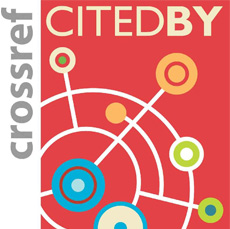ISSN : 2288-5412(Online)
DOI : http://dx.doi.org/10.14354/yjk.1998.9.31
The Spirit of “Omphalos” and the Strategies for Cosmopolitanism in Modern Irish Literature with Special Reference to Yeats, Joyce, and Heaney
Abstract
Since the end of the 19th century, the Irish writers’ strong attachmentto their own tradition has been expressed as their reaction to a sense oflack as reflected in terms such as “center,” “omphalos,” and “search forfather.” This phenomenon accounts for the birth of Irish nationalliterature. From Oscar Wilde and Bernard Show in the 19th century to therecent poet, Seamus Heaney, they tried to deanglicize and create their ownliterature. But through this process, they have not neglected the chance tobecome a master of the international literature, by using the language ofenemy. And each writer has a peculiar method of deanglicizing. Forexample, Oscar Wilde and Bernard Show who contributed tocosmopolitanism of modern Irish literature attacked and illuminated theEnglish audiences by the reversing play-role. Understanding the enhancednationalism, W.B. Yeats and other revivalists of Irish literature integratedEnglish culture and tradition into the nationalistic movement. This is whytheir works were called “the cracked glass of the servants.” J. Joyce andother modernists, in a genuine sense, sought for their original nationalityand to do this, they tried to recognize the picture of themselves as paralysis. From the establishment of the Irish Republic to the recent,strong nationalism and internationalism, as it has grown as one of theEuropean countries, have been reconciled.
Modern Irish literature has succeeded in regaining its own traditionand reaching top as one of the international literatures, getting throughthe five phases. During the first phase it showed the spirit to reverse theEnglish cultural system and value by preempting the role of the English.The second phase is the period when they stimulated the national feelingand praised national heros. At the third phase modernists including Joyce,Kinsella, and Clarke attacked the nationalism of the second phase, sayingthat it was like a bubble full of the imagination the English wanted, andthey exposed the realistic viewpoint of Irish life to their literary works. Thefourth phase shows the reconciliation between parochialism of P. Kavanaghand cosmopolitanism of J. Montague. The fifth phase shows that with theenforcing of nationalism caused by the Ulster Trouble, harmony ofnationalism and internationalism has been sought.
The most important element that has led modern Irish literature to thetop level is the spirit of omphalos through their confidence in their ownculture and the sense of lack, and thereby the attachment to losses inlanguage, land and tradition. Besides these, modern Irish writers haveoriented from the early period the Irish Republic towards an internationalcountry. The harmony of regionalism and cosmopolitanism, as well as thatof individual interests and community interests, has led the Irish Republicto become one of the best postcolonial countries and cultural models.
아일랜드 현대 문학의 중심추구 정신과 세계화의 전략1)
초록
-
-
Submission : JAMS
https://yjk.jams.or.kr/
-
YSK
The Yeats Society of Korea
-
Editorial Office
Contact Information- Tel: +82-2-2220-4477
- E-mail: ilhwan_y@hanyang.ac.kr -

-

-

-

-

-





